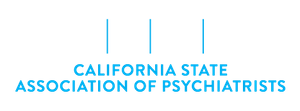The Department of Managed Health Care is again reaching out to CSAP and each of you for feedback on the recently signed parity legislation SB 221 (Wiener), which CSAP supported. Here’s their note in its entirety:
As you are aware, the Governor signed SB 221 (Wiener) into law this past October. As we work on our implementation of the bill, the DMHC Division of Provider Networks would like to speak with behavioral health associations to gain a better understanding of the current landscape for providers and the logistical side of operating a practice. To this end, it would be great to hear from 1-2 practitioners who are currently working in the field who are willing to share their experience and expertise. We are hoping to schedule a one-hour meeting over Zoom in December/January to discuss the questions we’ve provided below. Please email me with your general availability and our admin team will follow up with potential dates and times.
Background
DMHC requires health plans monitor their networks to ensure they have adequate capacity to offer appointments within certain time elapsed standards. As part of the required monitoring, health plans use a standardized methodology to survey a statistically significant sample of their providers to identify the next available appointment. SB 221 adds requirements that health plans include monitoring substance use disorder providers into their existing timely access standards, and adds a new 10 business day follow-up appointment standard for non-physician mental health and substance use disorder providers. SB 221 also requires that health plans maintain a network with sufficient numbers of mental health and substance use disorder providers who are available within timely access and geographic access standards. DMHC is evaluating how to direct health plans to implement these new requirements and seeks feedback regarding the following issue areas:
- Can you provide DMHC with context on how mental health and substance use disorder follow-up appointments are scheduled and an overview of different appointment scheduling arrangements or practices?
- Do all mental health and substance use disorder providers offer follow-up appointments? For example, are there providers who only take initial appointments and then refer to other providers, or take single appointments for crisis?
- Generally, are follow-up appointments clinically indicated within 10 business days (two weeks) of the initial appointment for treatment of mental health conditions and substance use disorder?
- How far in advance are follow-up appointments generally scheduled (e.g., the provider schedules out the next three follow-up appointments or schedules the patient to be seen every Wednesday at 3:00 pm)?
- How do telehealth platforms assign patients and schedule initial and follow-up appointments?
- Can you provide information or background concerning the different roles of substance use disorder clinicians, including the roles of certified and/or registered substance use disorder counselors, physicians and other non-physician providers?
- Can you provide information or background concerning the types of providers that can and do treat substance use disorders through telehealth modalities?
- Can you provide information or background concerning current gaps in the types of providers available to treat substance use disorders, that may impact access to these services in California?
If you would like to be part of this dialogue with the DMHC, please email Paul Yoder.
FYI, latest update on the SB 855 regulations being released is “by the end of the year”….

